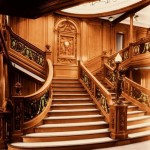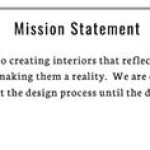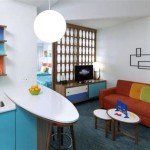Cabin Interior Design: Creating Warm and Inviting Spaces
Cabin interiors offer a unique opportunity for designers to create spaces that evoke a sense of warmth, comfort, and connection to nature. While the design can vary greatly depending on the cabin's location, size, and intended use, there are common principles that guide the creation of inviting and functional cabin spaces. This article explores key considerations in cabin interior design, examining the use of natural materials, cozy furniture, and thoughtful lighting to achieve an authentic and welcoming ambiance.
Embracing Natural Materials
A key element of cabin interior design is the use of natural materials. Wood, stone, and leather are all quintessential elements that contribute to the rustic charm and authenticity of the space. Wooden beams and planks on the ceiling and walls add warmth and texture, while stone fireplaces and accents bring a sense of ruggedness and durability. Leather furniture, throws, and accents add a touch of luxury and comfort, complementing the natural elements. The use of these organic materials creates a connection to the surrounding environment and enhances the feeling of being at one with nature.
Curating Cozy Furniture
Cabin interiors are all about comfort and inviting spaces. Furnishing a cabin requires thoughtful selection of pieces that are both functional and aesthetically pleasing. Oversized sofas and armchairs with plush cushions encourage lounging and relaxation. Consider incorporating a mix of textures and patterns, using sheepskin throws, woven blankets, and patterned pillows to add visual interest and warmth. For a rustic touch, incorporate vintage furniture pieces that have been lovingly restored or repurposed. Remember, the goal is to create a space that feels welcoming and comfortable, inviting guests to linger and enjoy the ambiance.
Creating Ambiance with Lighting
Lighting plays a crucial role in setting the mood of a cabin interior. Natural light should be maximized through large windows that frame views of the surrounding landscape. However, it is important to balance natural light with artificial sources to ensure the cabin is comfortably lit during evening hours. Warm, inviting lighting is essential to create a cozy atmosphere. Consider using a combination of table lamps, floor lamps, and pendant lights with warm-toned bulbs to create a soft and inviting glow. Dimmable light switches offer flexibility to adjust lighting levels based on the time of day and desired ambiance.
Embrace Rustic Charm
Cabin interiors often embrace rustic charm. There are several ways to achieve this aesthetic. For instance, using reclaimed wood for furniture or accent pieces gives the space a unique character and adds a touch of history. Additionally, weathered metal fixtures, such as light fixtures and hardware, complement the rustic style. The key is to find a balance between rustic elements and modern conveniences, ensuring the cabin feels both welcoming and functional.
Prioritize Functionality
While creating a cozy and charming space is essential, it is equally important to prioritize functionality in cabin design. Cabin interiors should be practical and user-friendly, accommodating the needs of both residents and guests. This involves carefully considering storage space, ensuring there is adequate room for belongings, and incorporating functional elements like mudrooms or boot trays for easy access and organization. The design should prioritize both aesthetics and practicality, creating a space that is both delightful and functional for everyday living.
Leveraging Local Influences
Cabin interiors can be further enhanced by incorporating elements that reflect the local surroundings. For cabins nestled in mountainous regions, using stone accents and mountain-inspired artwork can evoke the natural beauty of the area. Coastal cabins, on the other hand, may incorporate nautical accents, seashells, and beachy decor to reflect their seaside location. By incorporating local influences, cabins become more than just buildings; they transform into spaces that celebrate the beauty of their surroundings and foster a sense of connection to the place they occupy.
Enhancing the View
Cabin interiors should prioritize the view. Large windows and strategically placed furniture allow occupants to enjoy the surrounding landscape. When arranging furniture, consider positioning key pieces, such as sofas or dining tables, to maximize the view. This approach creates a sense of connection with nature, drawing the eye to the beauty of the outdoors while still maintaining the cozy ambience of the cabin.
Cabin interior design offers a unique and rewarding challenge. By embracing natural materials, curating cozy furniture, and carefully considering the placement of lighting, designers can create spaces that are both inviting and functional. The use of local influences, a focus on functionality, and the appreciation for the surrounding landscape all contribute to the creation of a truly special and unforgettable cabin experience.

Get Cozy With A Cabin Inspired Interior Design Real Estate U S News

Cabin Decor Ideas 10 Best Interior Designs The Family Handyman
27 Log Cabin Interior Design Ideas To Spark Inspiration

Rustic Cabin Interior Design Ideas Home Bunch

8 Best Cabin Interior Design And Decorating Ideas Stratford Candle Company

Stylish Log Cabin Interiors View Our Designs Ideas

Discover The 51 Best Log Cabin Interior Design Ideas In 2024

Log Cabin Interior Ideas Caribou Creek Homes

Before After Log Cabin Modern Interior Refresh Decorilla
27 Log Cabin Interior Design Ideas To Spark Inspiration








